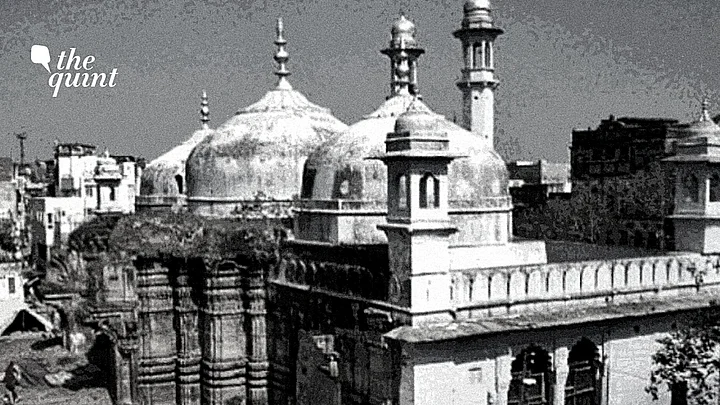(This story was first published on 16 May. It has been reposted from The Quint's archives ahead of the Supreme Court hearing on pleas against the Places of Worship Act.)
The Places of Worship (Special Provisions) Act ,1991 was introduced as a measure to provide and develop glorious traditions of love, peace, and harmony.
The object of the Act is to prohibit conversion of any place of worship – and to provide for the maintenance of the religious character of any such place as it existed on the 15th day of August 1947.
The purpose behind this was to check and control the communal hatred floated while claiming right over Ram Janmabhoomi-Babri Masjid and several other places of worship, including Gyanvapi and the mosque situated in Mathura near a temple said to be the birth place of Lord Krishna.
The Places of Worship (Special Provisions) Act
Section 3 of the Act extends prohibition of conversion of any place of worship.
Section 4 provides that "If, on the commencement of this Act, any suit, appeal or other proceeding with respect to the conversion of the religious character of any place of worship, existing on the 15th day of August, 1947, is pending before any Court, tribunal or other authority, the same shall abate, and no suit, appeal or other proceeding with respect to any such matter shall lie on or after such commencement in any Court, tribunal or other authority: Provided that if any suit, appeal or other proceeding, instituted or filed on the ground that conversion has taken place in the religious character of any such place after the 15th day of August, 1947, is pending on the commencement of this Act, such suit, appeal or other proceeding shall not so abate and every such suit, appeal or other proceeding shall be disposed of in accordance with the provisions of sub-section (1)."
This enactment was opposed vociferously by the Bharatiya Janta Party (BJP) on the floor of the Parliament as well as on public platforms with assertion that it is nothing but an effort to appease minorities.
The Supreme Court, however, in the Ram Janmabhoomi-Babri Masjid case, found this law as a great measure to protect the secular fabric of the Indian society.
The apex court also observed that in pressing the character of places of public worship, the Parliament has mandated in no uncertain terms that history and its wrongs shall not be used as instrument to oppress the present and the future.
The Suit in the Varanasi Court
A district court at Varanasi is now adjudicating a suit seeking the “restoration” of a temple at the site of the Gyanvapi Mosque.
The suit was filed on behalf of deities – Shiva, Maa Shringar Gauri, and Ganesh – by certain individuals who allege that the temple was destroyed on orders of Aurangzeb in 1699.
The court not only sought responses from the Centre, the Uttar Pradesh government, Varanasi district magistrate, Varanasi senior superintendent of police, the managers of the mosque, the board of trustees of the adjoining Kashi Vishawanath Temple, and the Uttar Pradesh Muslim Personal Law Board, but on an application, has now passed an order to have the mosque surveyed by a commission appointed by it. Report of the commission is to be submitted on 17 May.
The case appears to be a part of an agenda to raise and agitate the issues relating to the places of worship which were said to be converted centuries ago. This, and the efforts alike are causing serious injuries to communal harmony.
On the face of it, the legal course adopted appears to be in conflict with the provisions of the Act of 1991. The court before calling report should have decided the issue pertaining to the application of the Act aforesaid.
This issue is also pending consideration before the Supreme Court though no interim order has been passed staying the survey ordered, but the appropriate course even for the trial court was not to pursue for the survey till having a mandate on the issue by the apex court.
Why Courts Need to Be Vigilant
The courts must be vigilant about the effect, affect, and consequences of their orders in such delicate matters. In the instant matter, there is no such urgency that may warrant a report of survey at this stage.
Be that as it may, now it is for the Supreme Court to examine the entire issue. The verdict of the apex court will have far-reaching consequences.
The court, while dealing with the matter about application of the Act of 1991, should also keep in mind the purpose and object of this enactment, and the consequences, if such kind of litigation be permitted to be adjudicated by legal forums.
In entirety, the secular fabric of our country is at stake and that is to be protected in any case.
(Justice Govind Mathur is a former Chief Justice of the Allahabad High Court. This is an opinion piece and the views expressed are the author’s own. The Quint neither endorses nor is responsible for them.)
(At The Quint, we question everything. Play an active role in shaping our journalism by becoming a member today.)
